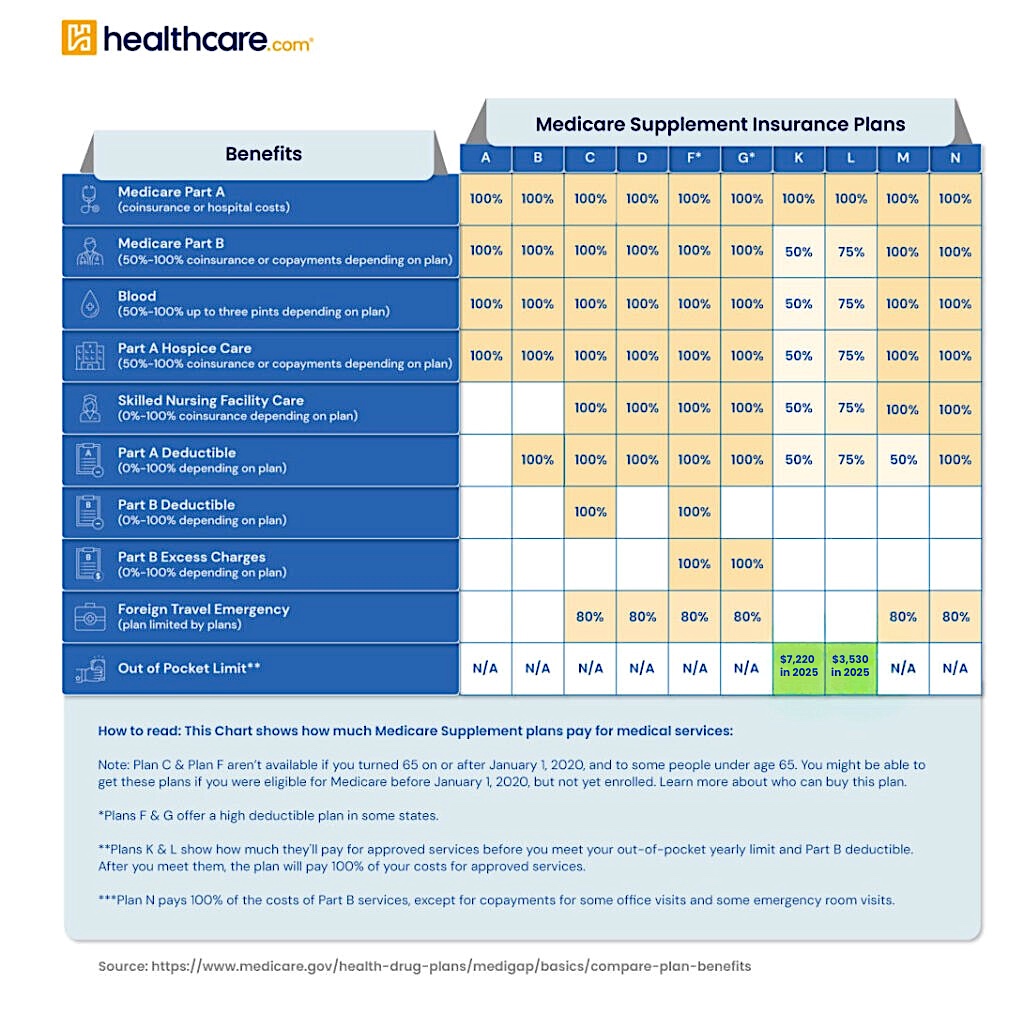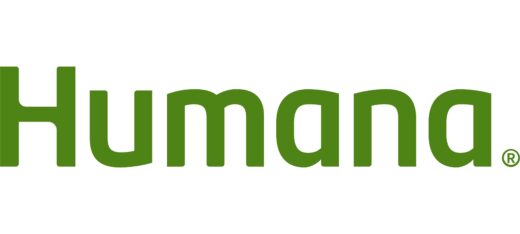Written by Melinda Sineriz
HealthCare Writer
We aim to help you make informed healthcare decisions. While this post may contain links to lead generation forms, this won’t influence our writing. We follow strict editorial standards to give you the most accurate and unbiased information.
What You Need to Know
- Medicare Supplement plans, also known as Medigap, help pay for out-of-pocket costs not covered by Medicare Part A and Part B.
- Nevada insurance companies must accept your Medicare Supplement (Medigap) plan application if you’re in your Medigap Open Enrollment Period or have guaranteed issue rights.
- The three most popular Medigap policies are typically Plans F, G, and N.
What Are Medicare Supplement Plans in Nevada?
Medicare is a federal health insurance program for individuals aged 65 and older, as well as younger people with qualifying disabilities or health conditions (e.g., end-stage renal disease).
Original Medicare, which includes Part A (Hospital Insurance) and Part B (Medical Insurance), covers many healthcare services. However, it still leaves you with out-of-pocket costs like deductibles, coinsurance, and copayments.
Medicare Supplement plans help pay for these expenses.
Medigap plans are standardized by letter (A through N). That means Plan A from one company offers the same benefits as Plan A from another, though premiums may differ.
Learn how these plans work and how they benefit residents of Nevada.
Compare options HERE & start your health plan journey.
When Can You Enroll in a Medicare Supplement (Medigap) Policy?
You can apply for a Medigap plan at any time. However, outside of your Medigap Open Enrollment Period—or without guaranteed issue rights—insurers may use your health history to deny coverage or charge higher premiums.
Your Open Enrollment Period lasts for six months. It starts the month you’re both age 65 (or older) and enrolled in Medicare Part B. During this time, insurance companies must offer you any plan they sell at standard rates, regardless of your health.
This is the ideal time to enroll because it gives you the widest choice of plans and the best rates.
You may also qualify for guaranteed issue rights in specific situations, such as:
- Your Medicare Advantage plan is ending or you move out of its service area.
- Your employer group health coverage is ending.
- You joined a Medicare Advantage plan when first eligible and switch back to Original Medicare within the first year.
- Your Medigap insurer misled you or goes bankrupt.
Birthday Rule: Effective 1/1/2022, individuals can switch to a Medicare supplement plan of equal or lesser benefits from any carrier without medical underwriting. Enrollment lasts 60 days from the first day of their birthday month, with notice required 30–60 days beforehand.
Note: Nevada doesn’t require insurers to offer Medigap policies to people under 65. If you qualify for Medicare due to a disability or ESRD, you may need to wait until age 65 to purchase a Medigap plan, though Medicare Advantage plans may be available to you.
What Are the Most Popular Medicare Supplement Plans?
Nationwide, the most common Medigap plans are:
- Plan F: Offers the most comprehensive coverage but is only available to those eligible for Medicare before January 1, 2020.
- Plan G: Covers nearly everything Plan F does, except the Medicare Part B deductible.
- Plan N: Covers most major expenses but has copayments for some doctor and ER visits and does not cover Part B excess charges.
How Do You Choose a Medicare Supplement Plan?
Start by selecting a lettered plan (e.g., Plan G or N) based on your medical needs and budget. Because plans are standardized, coverage doesn’t vary by insurer—but premiums do.
Pricing methods vary by insurance company:
- Community-rated: Everyone pays the same premium, regardless of age.
- Issue-age-rated: Premiums are based on your age when you buy the plan and don’t increase with age.
- Attained-age-rated: Premiums are based on your current age and increase as you get older.
Be sure to compare the same plan letter (e.g., Plan G vs. Plan G) across multiple insurers to ensure you’re comparing equivalent benefits.

How Much Do Medigap Policies Cost?
Medigap premiums in Nevada vary based on:
- Your age and gender
- Whether you use tobacco
- The plan type you choose
- The pricing method used by the insurer
Always request quotes from multiple insurers to compare your options.
Compare options HERE & start your health plan journey.
What If You Want to Change Your Medicare Supplement Plan?
You can apply to change your Medigap policy at any time. However, unless you qualify for guaranteed issue rights, insurers may review your health history and either deny coverage or charge higher premiums.
If approved, remember to cancel your previous policy once your new one is in effect.
What Are Alternatives to Medicare Supplement Plans?
Medicare Advantage plans, also known as Part C, are an alternative to Original Medicare, offered by private insurance companies. These bundled plans include:
Many plans also offer extra benefits like routine dental, vision, hearing, and fitness programs. Instead of combining Medigap and a Part D plan, some people prefer an all-in-one Medicare Advantage plan.
Learn more about Nevada Medicare Advantage plans.
Medicare Part D
Medicare Part D plans provide standalone prescription drug coverage.
- Who needs it: Anyone with Original Medicare (Parts A and/or B) who wants drug coverage.
- What it covers: Prescription medications. Coverage varies by plan.
- How it’s offered: Through private insurers approved by Medicare.
- Not needed if: You’re in a Medicare Advantage plan that already includes drug coverage.
Shop for a Medicare plan with additional benefits!
Do Medigap Plans Cover Prescription Drugs?
No. Medigap policies do not include prescription drug coverage. If you need help paying for medications, you’ll need to purchase a separate Medicare Part D plan.
Medicare Resources in Nevada
Nevada residents can receive free, unbiased assistance through the following programs:
- State Health Insurance Assistance Program (SHIP): Offers personalized Medicare counseling and help comparing plans.
- Nevada Division of Insurance: Regulates insurers and assists with complaints or concerns about Medigap policies.
- Nevada Medicaid: Provides health coverage for eligible low-income individuals and may coordinate with Medicare.
Next Steps
If a Medicare Supplement plan in Nevada meets your needs, start by selecting the plan letter that fits your healthcare situation. Then compare plans from multiple insurers in your area.
You can explore options online or connect with a licensed insurance agent for expert guidance and personalized support.
Thank you for your feedback!
U.S. Government Website for Medicare. “2020 Choosing a Medigap Policy: A Guide to Health Insurance for People with Medicare.” medicare.gov (accessed March 17, 2021), 9.
“2020 Choosing a Medigap Policy: A Guide to Health Insurance for People with Medicare.” 14-15.
“2020 Choosing a Medigap Policy: A Guide to Health Insurance for People with Medicare.” 22-23.
“2020 Choosing a Medigap Policy: A Guide to Health Insurance for People with Medicare.” 15, 40.
“2020 Choosing a Medigap Policy: A Guide to Health Insurance for People with Medicare.” 11.
“2020 Choosing a Medigap Policy: A Guide to Health Insurance for People with Medicare.” 49.
“2020 Choosing a Medigap Policy: A Guide to Health Insurance for People with Medicare.” 10.
America’s Health Insurance Plans. “State of Medigap: Trends in Enrollment and Demographics.” ahip.org (accessed March 17, 2021), 8.
“2020 Choosing a Medigap Policy: A Guide to Health Insurance for People with Medicare.” 18.
“2020 Choosing a Medigap Policy: A Guide to Health Insurance for People with Medicare.” 7.
“2020 Choosing a Medigap Policy: A Guide to Health Insurance for People with Medicare.” 14.
“2020 Choosing a Medigap Policy: A Guide to Health Insurance for People with Medicare.” 7.








